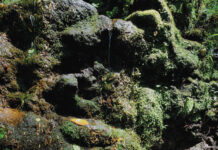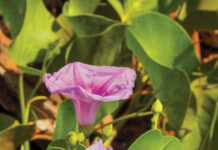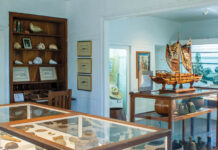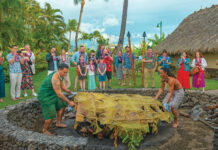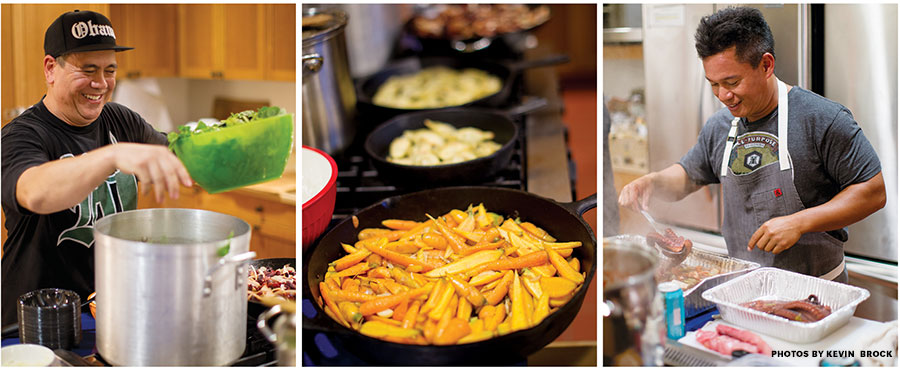
Says Kanakaʻole, “These guys who live off the land don’t always see their lifestyle as important for others to understand, but I think that starts to change [at] Hāna Kū.”
Rick Rutiz agrees. An Ala Kukui board member, he’s also the founder of Ma Ka Hana Ka ʻIke, a nonprofit program that teaches Hāna youth carpentry skills.
“In our Western society, some of these guys are looked down upon because they don’t have a forty-hour-a-week job . . . but they’re providers for their families and the community, and they’re perpetuators of cultural knowledge,” he says, voicing the need to elevate respect for their lifestyle. “I don’t believe the answers are all about getting high test scores and sending them off to some university. A lot of the kids just want to [raise] a family and continue the ways of Hāna, and if that’s acknowledged by the outside as a sign of success, then we’re winning.”
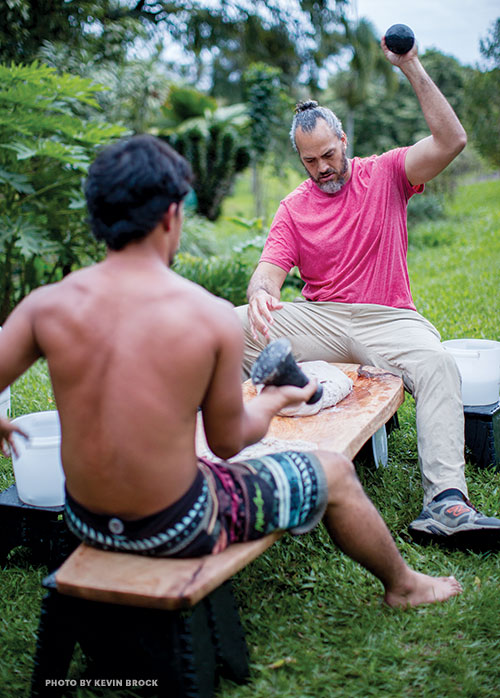
These families may choose a subsistence lifestyle, but throughout the weekend, they share their enthusiasm and their secret places—something almost unheard of among area locals. And with good reason: many of Hāna’s two thousand or so residents live off the land and waters they so fiercely guard.
“A lof of Hāna people see this ʻike [knowledge] as kapu [sacred] because our kūpuna [ancestors] taught us that it’s supposed to only go down in the family,” explains Nakua Konohia-Lind.
The twenty-four-year-old Hāna resident is a crewmember on the voyaging canoe Hōkūleʻa, and recently completed its three-year Mālama Honua Worldwide Voyage. That experience, he says, showed him the value of sharing cultural knowledge in order to preserve it for future generations.

